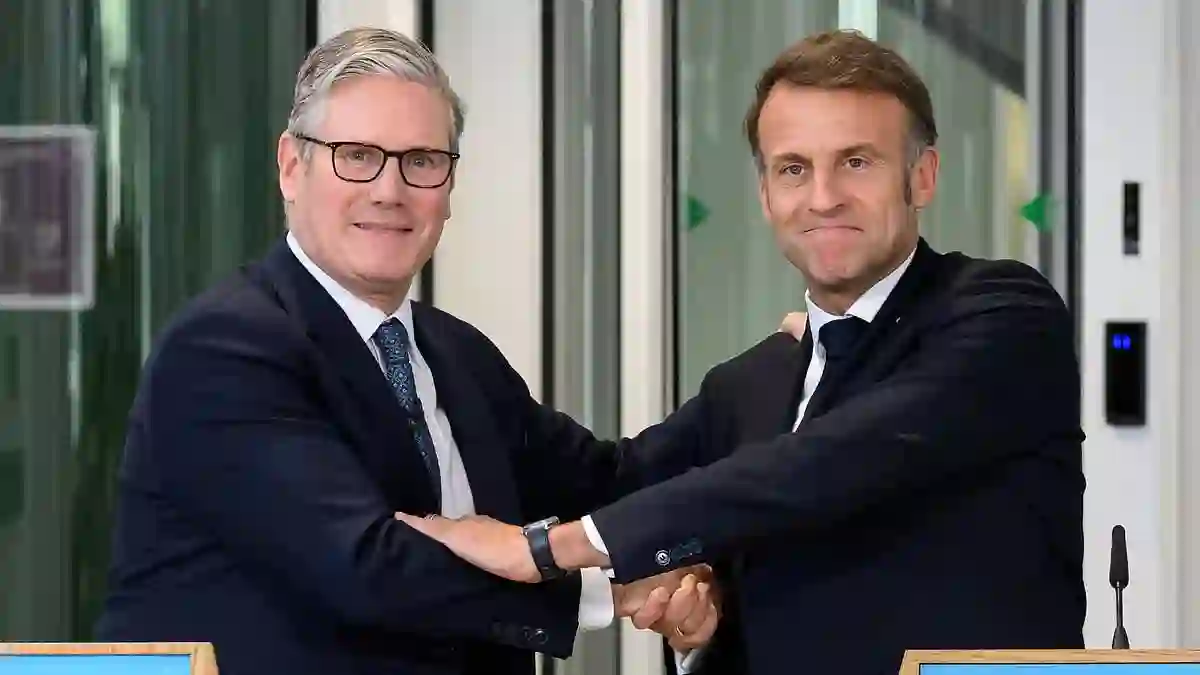With Labour now at the helm, Prime Minister Keir Starmer is under intense pressure to take control of the ongoing small-boat crisis in the English Channel.
And this week, he unveiled a fresh deal with France — one that he claims will finally “turn the tables” on smugglers and restore some order to Britain’s asylum system.
But early signs suggest this new agreement might just be a rebranded version of old problems — with legal uncertainty, logistical limits, and plenty of unanswered questions already casting a shadow.
A Softer Approach Than Rwanda, but Just as Legally Tricky
The new UK-France plan doesn’t involve sending asylum seekers halfway across the world like the previous Rwanda scheme.
Instead, it proposes that small-boat migrants be returned to France.
Sounds straightforward, but it’s not. Even the Home Office admits they’re bracing for legal challenges, and there’s still no clarity on whether the EU will greenlight the agreement.
Under EU rules, immigration deals between two countries — like the UK and France — typically need Brussels’ blessing.
And then there’s the key issue: will this actually deter people from making the journey?
Who’s Being Sent Back to France — and How Many?
Right now, the details are vague. Officials say the scheme will start small, possibly with around 50 removals a week, and “build up over time.”
That’s a drop in the ocean compared to the over 44,000 small-boat arrivals since Labour took power.
Anyone arriving via small boat could be eligible for removal — but how they’ll be selected remains unclear.
It’s being described as an “operational matter” to be handled case-by-case. In short: they’re still figuring it out.
Once selected, migrants will have their asylum claims declared “inadmissible” and be held in immigration centres — which currently have space for about 2,200 people — before being flown back to France.
But not near Calais, where many tend to cross.
Officials say returnees will likely be sent deeper into France, further from the northern coast.
The Exchange Plan and Who Might Be Accepted by the UK
In return, the UK will accept a small number of migrants from France under a new legal route. But there are conditions.
To qualify, migrants must apply online and go through strict security checks. Preference will be given to:
-
People from top small-boat nationalities such as Afghans, Iranians, and Iraqis
-
Those with family ties in the UK
-
Asylum seekers from countries with high success rates, like Syria, Sudan, or Eritrea
But here’s the catch: if you’ve already tried to enter the UK illegally (like by boat), you’ll be ruled out from this route entirely.
Smugglers Will Likely Adapt — Again
Starmer insists this deal will disrupt the smuggling networks that profit from the dangerous Channel crossings.
But let’s be honest — smugglers are adaptable.
Many are already offering “package deals” or “season tickets”, promising to help migrants try again if they get caught or deported.
If they’re sent back to France, smugglers could easily offer a new route — maybe this time hidden in an HGV.
That kind of underground movement — more difficult to track and even harder to prevent — could make a return.
It’s how many used to enter the UK before the small-boat surge began.
Will This Actually Reduce Asylum Claims?
Probably not in any major way.
In the year up to March, the UK logged over 109,000 asylum claims, a record number.
And this new scheme, being a “one-for-one” exchange, doesn’t promise to reduce that.
What it might do is reduce the visibility of small boats arriving at Dover — something officials refer to as improving the “optics” of the problem.
In other words, it may look like progress without actually solving much.
Still Waiting on French Action at Sea
One major piece missing from the announcement? A clearer role for France in intercepting boats already in the water.
There were hopes of a new “maritime review” being announced — maybe even stronger powers for French police to stop boats just after launch — but that part’s still up in the air.
Starmer simply said the review was “ongoing.”
What’s Next?
As the UK begins this new chapter in managing Channel migration, the big questions still remain.
Will France cooperate long-term? Will EU leaders support it? And most importantly — will it actually work?
So far, critics — especially from the Conservative side — are calling it a “weak and ineffective gimmick.”
Others worry it may only push migrants and smugglers to shift their tactics.
For now, we wait. But the Channel crossings continue — and so do the complications.
